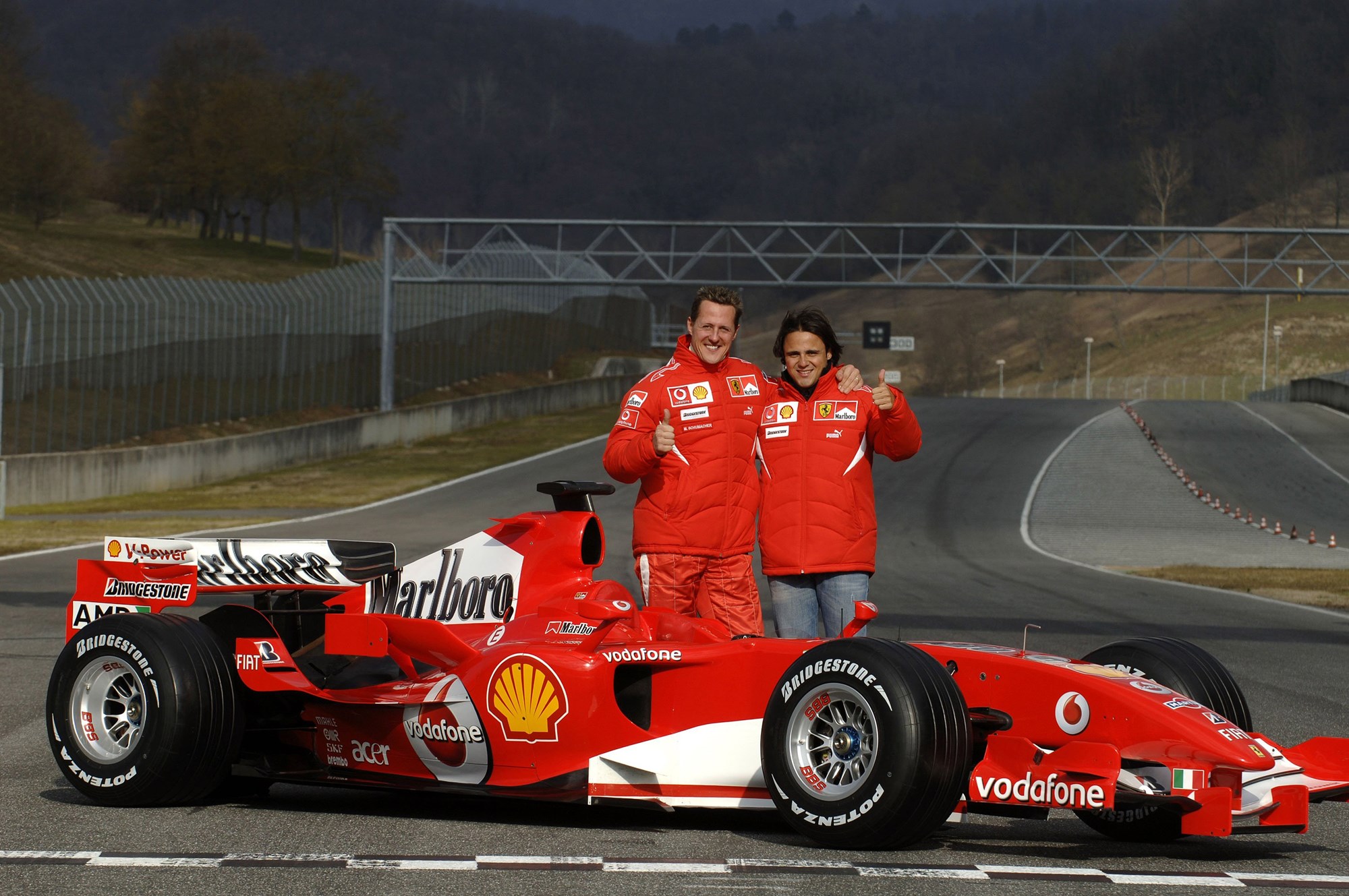Scandalous rumours but no race-fixing
It seems almost every international sport has a turn at being involved in corruption scandals, betting scandals, doping scandals or other as-yet unimagined scandals.
Doping scandals in horse racing, boxing, baseball, athletics and other high-profile sports are almost commonplace. Even chess was involved in 2008.
Corruption in sports administrations, game- or match-betting and match-fixing seems to be a part of modern sport.
Gambling has been part of sport since Romans took a punt on gladiators. It follows that where there is gambling, there is an opportunity to bribe the participants.
Where huge, rich organisations are determining where and how sports are to be played there is the whiff of corruption, imagined or not, and the assumption that they must be corrupt at some level.

Ferrari driver Michael Schumacher (left) with Felipe Massa.Picture / File
We have athletics and Fifa to thank for that. The world game of soccer is the main focus of corruption allegations; cricket and tennis fill the sports pages when it comes to match-fixing.
But what of motor racing, in particular Formula 1? It is said the easiest sport to throw a game is tennis as one long shot or one too many foot-faults can determine the game. But surely just one mistake when leading a motor race can influence the outcome.
Big bets are placed on F1 around the world and although it is inconceivable one of the top drivers would even think of getting involved in any skulduggery to earn what would amount to small change, many on the grid earn little or no money so the parallels with tennis and other sports are clearly there.
I do not for one second believe that any driver has been involved in race-fixing for any sort of financial gain from outside the sport. In fact, what does constitute race-fixing?
It is the norm in F1 to favour one driver over another in winning a race. The great Michael Schumacher won more than one of his 91 F1 GP wins by the team instructing his teammates to move over and let him through.
That scenario is commonplace among F1 teams. Is it a stretch to call it organised race-fixing?
Yes, the crews operate as a team, not individuals. But if you put money on a driver to win and that driver was taken out of first place to help his teammate win, that could be very annoying.
It has been known for one team to agree with another on the outcome of a race to benefit them both. That form of manipulation is seen as part of the fabric of the sport and has been since the early days. Why is it accepted in motorsport and not in other competitions? Surely the principle is the same?
Perhaps the most blatant example of race-fixing was at the 2008 Singapore F1 GP when Renault driver Nelson Piquet Jnr. was instructed by senior team management to deliberately crash his car and bring out the safety car.
Teammate Fernando Alonso had already made his pit stop when Piquet got the word to crash, which meant all the other cars came in for their pit stops, resulting in Alonso vaulting from his lowly midfield position into the leading bunch. He won the race.
In the subsequent FIA investigation and hearing, Renault was disqualified from F1 (the penalty was suspended for two years) and the team members responsible were also suspended from F1. That incident caused huge damage to F1.
Scandalous rumours surround F1, especially the ringmaster Bernie Ecclestone. His battles with German legal authorities are now the stuff of F1 legend.
Do I believe that drug-taking, match-fixing, race-fixing, betting syndicates and the rest are prevalent, or even present, in modern F1? No, I don’t.
It may seem to be the preserve of multimillionaires, spoilt brats, personal jets and enormous yachts. But it is also manned by a huge number of “ordinary” people — mechanics and engineers who are all too clever, and outspoken, to cover up any suspicions for long.




